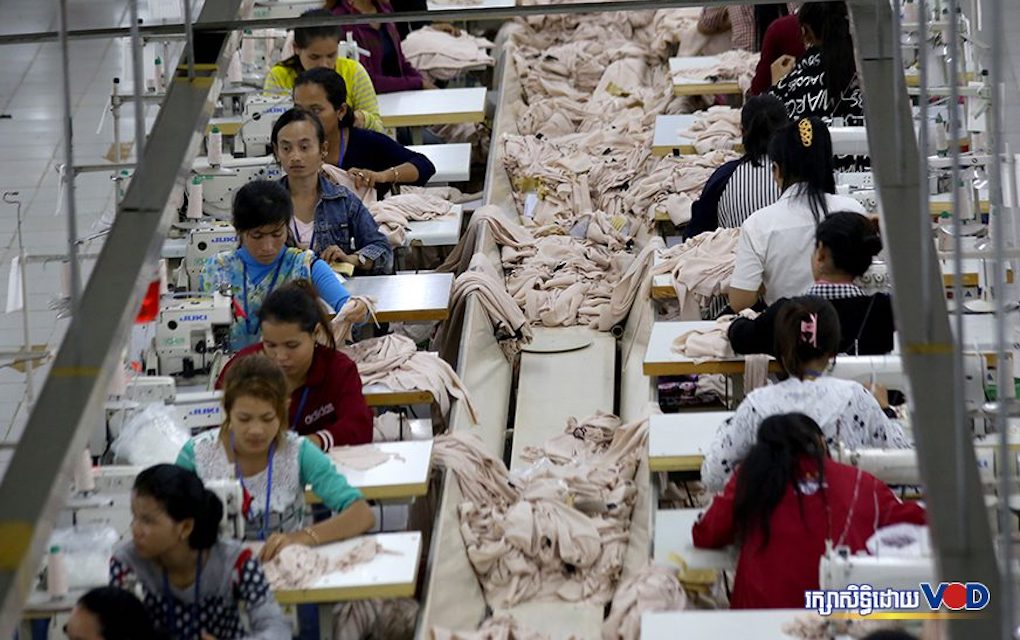The Asian Development Bank on Tuesday revised Cambodia’s expected economic contraction this year from 5.5 percent to 4 percent, noting growth in non-garment exports thanks in part to demand for work-from-home electronics.
In its Asian Development Outlook 2020 Update, the bank said Cambodia’s tourism and garment export industries had been hit hard by the Covid-19 pandemic, causing a sharp drop in orders from Europe and North America and a “collapse in international tourism.”
Some 3,000 service sector businesses had closed down by June, and 45,000 workers in the industry were laid off, it said, also noting a slowdown in construction.
According to the Garment Manufacturers Association in Cambodia, more than 400 garment factories shuttered operations this year, affecting 150,000 jobs in the sector.
However, the bank noted that agricultural exports rose 17.4 percent in the first half of the year compared to the same period a year earlier, and non-garment, non-footwear and non-travel goods exports rose 30.3 percent, driven by increased production of bicycles and electronics.
“In the first half of 2020, strong demand for work-from-home electronics boosted exports from Cambodia, Malaysia, Singapore, and Viet Nam,” it said.
Still, the report warned of “unexpectedly deep or persistent weakness” in garments and construction, and “poor harvests after deficient rainfall in June-July,” as downside risks.
Consumer demand could also be further suppressed “as more households suffer financial distress,” it said.
The government has pushed agriculture as its solution to woes in garments and tourism, with Prime Minister Hun Sen claiming the pandemic would allow Cambodia to “dominate” in the sector.
“[Covid-19] is not only not hurting [Cambodia] but it also allows us to dominate in the agricultural sector,” Hun Sen said in July. “That is why the government has quickly changed direction to push for [financial support in] the agricultural sector at large.”
However, some Cambodians returning to the provinces after losing their jobs in factories or in Thailand have said they are struggling to get into farming due to land and capital requirements as well as a glut of workers looking for farm labor jobs.













